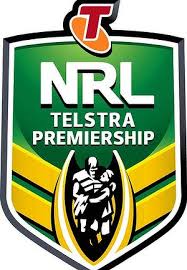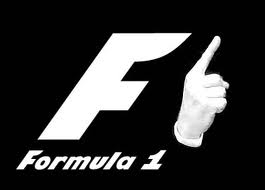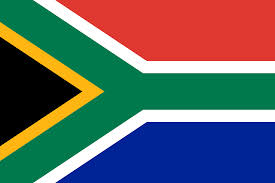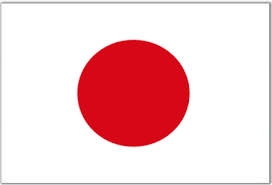Stuttgart Reds, Head Coach Troy Williams part ways / Becomes NY Yankees Scout - http://www.mister-baseball.com/stuttgart-reds-head-coach-troy-williams-part-ways-ny-yankees-scout/
https://www.facebook.com/270008450176/posts/10155366811150177
Regional Sports News
Advertisers Specials
International Baseball

Derhak Bridging Baseball Divides for Czech Baseball
By Jason Daniels, contributing writer.
Late in 2023, we covered everyone’s favorite new baseball relationship: the blossoming partnership between Japan and the Czech Republic. Going into 2024, tracking the impact of Czechia’s remarkable World Baseball Classic (WBC) success only felt right. This is all the more true as the baseball connection of the Central European country with Japan has only strengthened since then, and also because Czech baseball is focused on ever loftier goals. In following up, we take a deeper look into the nations’ cooperation which, tellingly, offers a glimpse into a modern baseball world where countries and cultures are not only more connected, but more understanding and collaborative on the field than ever before.
– – –
Still reeling from 26 hours of travel from Prague to Tokyo to Ishigaki, Alex Derhak stepped up to the podium. Before him in lined chairs sat 150 Chiba Lotte players and staff inside a massive indoor baseball facility. A pack of patient media steadied its equipment to the side of the batting cages.
“Oh, this is big time,” recalls the American ex-pat. “It was a lot of people.”
Bringing him to this moment was a goodwill mission of sorts. The Chiba Lotte Marines of Nippon Professional Baseball (NPB) had invited the Czech national team hitting coach to its February spring training, where Derhak would serve as a visiting coach and ambassador as part of the Marines – Czech Republic Baseball Bridge Program that spawned organically following the 2023 WBC.
This morning marked the first official team meeting. Manager Yoshii-san (the “san” an honorific similar to “Mr.” in English) got things underway, unpacking the Marines’ slogan for the year before calling out players one-by-one to inquire how the team could win the championship this season, to which they responded into the microphone.
Introductions for newcomers followed and Derhak was soon summoned. Having studied his Duolingo and cultural etiquette, he planned to use the paragraph of Japanese he’d been practicing, keep it short and sweet, and that would be that.
“Well, I go up there to say it,” he recounts, “and the microphone [goes] out on me. I’m just like, oh no.” Stumbling through his introduction, he solemnly wished the group a good morning and shared what an honor it was to be there.
Derhak’s translator, Teddy, was up next. Teddy is, fittingly, a large teddy bear of a man who hails from Japan but lives in Prague half the year where he offers tours to Japanese travelers. His knowledge of Japanese baseball is immense and he makes no secret about his Czech baseball fandom. “He is probably Czech’s number one fan,” says Derhak. Teddy eagerly opened up to the room. Quickly, baseball cultures were beginning to converge.
– – –
This was the beginning of day two in Ishigaki, which is nothing short of a tropical paradise at the center of the Yaeyama Islands, lying southwest of Japan’s mainland. Renowned for its beaches and snorkeling, Ishigaki skews geographically closer to China than mainland Japan and closer to Taiwan than the Okinawa prefecture to which it belongs. In its own right, Ishigaki is where cultures converge.
Derhak had just arrived from Tokyo, where hordes of Japanese fans greeted the Czech caravan at the airport. The fanfare would follow everywhere this trip. A quick charter bus to the hotel and an entire beach-front resort appeared, which Chiba Lotte had rented just for players and staff. “I was given VIP treatment,” Derhak confirms. A stark shift from the modest confines and accommodations of the Czech Extraliga. “It was the big leagues.”
Corporate Calling
Making this trip a reality was Panasonic Holdings Corporation. How exactly it became involved requires a few steps back. During the WBC, the Czechs made extra headlines when Samurai pitching sensation Roki Sasaki, a member of the Chiba Lotte Marines, drilled Czech outfielder Willie Escala in the knee with a 100-mph fastball. A colleague on the team’s marketing side, Akira, witnessed the hit by pitch and had an idea. He tracked down the Czech delegation and proposed that Sasaki offer a token of goodwill by delivering two sacks of Lotte-branded candy to Escala the following morning.
Lotte, as appears in the team name, is one of the largest confectionary companies in Asia. In Japanese baseball, conglomerates and corporations own the professional teams. Doing so is seen as an effective way to market products and boost public relations. Overnight, this notorious beaning became a tactical windfall for Lotte.
Lotte’s opportunism helped open the door for partnerships to bloom. Following the WBC, a Czech baseball contingent led by national team manager Pavel Chadim returned to Japan to forge an official partnership between the two countries. Chadim’s contract had just been extended, which meant that Derhak was also retained. Derhak just had one request for Chadim: “I don’t want any more money, but I want you to send me places to learn.” He made his preferred place of learning clear: “I want to go to Japan.”
When Chadim met with Chiba Lotte last August, part of the deal was that a Czech national team coach would come to Japan. Derhak got his wish. Panasonic agreed to sponsor the exchange and Chiba Lotte organized the rest. Why Panasonic? For the past few decades, Panasonic has occupied a large footprint in Plzeň (Pilsen), Czech Republic, where it has been a major manufacturer and employer. In fact, Panasonic made one of the first Japanese investments in the Czech Republic in 1996. And just last year Panasonic opened a large facility in Pilsen dedicated to control panels for heat pumps and air conditioners. The baseball sponsorship made too much business sense.
Naturally, one of Derhak’s first stops in Japan was with Panasonic, which capitalized on the opportunity. “I go look at all these air conditioners with a video crew filming me the whole day,” he says. He met the bigwigs, doling out autographs and photos, and then starred in an air conditioning commercial. “I do hope it comes out, because it’d be kind of funny.”
Establishing Culture
Before he left for Japan, Derhak did extensive research to prepare himself for what to expect. Given the cultural differences, he is glad he did. He also picked up on a lot after he arrived.
He found attitude and respect woven into seemingly each part of Japanese life. Every morning, each person says good morning to one another, heads bowing in respect. Hats then come off as you enter the coach’s room. Inside, coaches are seated by seniority, going all the way to the back of the room. Derhak would approach the manager to say good morning and then work his way down the rest of the room, one earnest “ohayou gozaimasu” (“good morning”) after another.
“It sounds like a lot, but it went really fast. In fact, I liked it.”
Coaches and trainers would address the group before sharing a sincere thank you to the room, to which everyone would echo a collective “thank you” back. “There’s all kinds of respect protocols. And you just catch onto these things. It didn’t feel so strict. It was still personable.”
These practices bled into training. When players and staff first stepped foot onto the field, they’d take off hats and bow to show respect to the sacred ground. At the end of the day, they would do the same to say thank you. “Respect” and “thank you,” however, are slight understatements. It is more like a reverence, an almost deification of the sport, an attitude that has its roots in Japanese Shintō and Buddhist traditions. This veneration is the fuel that makes the engines go.
“On the 12 days I was on the field, I might have seen maybe one guy spit. No seeds, no dip. Guys chewed gum. I didn’t hear anybody swear or get flustered once, even. There wasn’t bad body language. There are no issues with attitude whatsoever. Or buy-in. Coaches never showed anybody up. In fact, everybody was having fun. And every player gives a hundred percent all the time.”
It’s not heaven. And for Field of Dreams faithful, it’s not Iowa – it’s just Ishigaki.

A Day in the Life
A typical spring training day began with a 9:20 a.m. bus ride to the indoor facility. In the morning were team meetings followed by team drills, lunch, and finally individual or extra work. Intentionally, the team comes before individuals.
During the first couple days, Derhak witnessed a focus on baserunning, team defense, and batting practice. The latter featured two turtles instead of just one. Efficiency is prioritized.
After lunch, many of the players put in extra work. There was no shortage of staff to assist. “It was free for players to get any kind of work they want, whether it be defense, hitting, however they want it.”
By three o’clock, everyone would move from the chocolate-brown, all-dirt infield to the turfed indoor facility where the team has a weight room and state of the art pitching machines. “A little bit different than the JUGS machines back in the Czech,” Derhak concedes. “Guys would just take so many swings. Full, maximum effort game swings.”
What astonished Derhak were not the drills themselves – most of which were familiar, save for a few details that he’s eager to bring back to the Czech Republic – but the length of time that players would engage in drills at eye-watering intensity and full focus. In most baseball circles, 10 minutes of focus for anything is pretty good. “They did it 30 minutes, locked in.”
Pitchers would consistently field the ball cleanly and throw right to the base. And catchers? “They worked their [butts] off. They threw down to second base 20 times in a row, full game speed.”
Normally in Europe and the US, practices involve a build-up to full intensity. Not so much in Japan. “They had nearly no progressions. Ground balls, they’re just going to shortstop and taking 200 ground balls, game speed.”
Candidly, he admits that while observing he would get antsy because he wanted to be more involved and feel useful. When he’s on a baseball field, he’s moving all the time. On the third day, Chiba Lotte finally had a job for him. The team was taking batting practice on the field. Loads of fans were in the stands. “They were like, ‘Hey, can you throw’?” Derhak didn’t hesitate. “Yeah, I can throw it!”, he reflects back, chuckling. “Finally, I do something.”
Stepping in to toss batting practice not only gave him a sense of utility but it sent a message that he could hold his own; he gained respect in that moment. It was a departure from Derhak’s role in the Czech squad, where he carries a heavy load with the national team, and Extraliga club Hroši Brno, which he also manages. “For every job I’m naming, [the Marines] have five people who do it.”
Though plenty separates Czech and Japanese baseball operations, the two countries are not all that far apart. Encouragingly, Derhak found Manager Yoshii open to fresh ways of approaching the game. “Compared to other organizations, I was told he has a much more western kind of club.” This is a noticeable shift in a Japanese culture that can stress work until utter exhaustion and require that all players remain at the field until the manager has left for the day. “He’ll actually communicate to the guys, ‘Hey, if you’re tired, go home and rest.’”
All in the Family
Speaking with members of the Marines’ front office, one thing Derhak learned was that Chiba Lotte sticks with its own. Outside of the manager and a couple of hitting coaches, Derhak notes that the rest of the staff at one point played for the Marines. If someone leaves the organization, though, they are not brought back. “There’s a lot of loyalty and comradery. It felt like a big family.”
Whenever the Marines sign someone, that contract is guaranteed. “If he sucks, it’s on them.” Players get sent to the minors if they’re underperforming, but the team doesn’t release people. “They’re really big on development.” This year that is especially the case. “Their only national team player is Roki. Their team is super young.”
Roki Sasaki
On his second day in Ishigaki, Derhak received a visit from Sasaki, a year removed from his WBC fame and one of Japan’s top pitchers. They shook hands and posed for a picture, Sasaki poaching Derhak’s Czech hat and placing it on his own head for the photo op. Derhak then pulled out a Czech hoodie to give to Sasaki. Still an admirer of Czech baseball, Sasaki beamed. Gift-giving had come full circle. “He was super happy.”
Sasaki carries a special aura in Japan. Whenever he pitched at spring training, the place grew electric. Remarkably, he is just 22 years old. “Compared to the other 22-year-olds that were there, he’s definitely got more power and respect from everybody.”
“I’ve never been around anybody as famous as that kid. It was like being around a pop star like Elvis [with] how crazy the people are going for him.” But consistent with the team-first mentality, Sasaki’s status does not go to his head. “Super nice kid. He works just as hard as anybody there.”

Derhak’s Road
What brought Derhak to this point is a winding tale of world adventure, dogged persistence, and well-earned fortune. A coach’s journey with its share of twists and turns.
The New Hampshire native’s professional career began with a five-year stint in the U.S. independent leagues, which by 2008, with domestic prospects drying up, led him abroad to Adelaide, South Australia. After a few years Down Under, he picked up his first managerial role for the Woodville Senators. There he married his no non-sense approach with a catcher’s mentality and a natural ability to motivate those around him. That season he was all business. He even kept a tight ship around dirty dishes in the sink. I know because I was his roommate.
Derhak felt at home in Adelaide. He felt loved there. And he was loved. He envisioned a future in Australia and wanted to stay, until a fateful life event changed the course of his career and placed him in Europe for the next decade. He settled into Brno, Czech Republic, a place where he had already spent a few baseball seasons in between Australian summers, and where he would continue to ply his craft, teach English, and raise a family.
Before long, Derhak would parlay his coaching experience into a managerial role with the Bonn Capitals of the German Bundesliga in 2019. He stepped into a team laden with talent and veteran leadership. Bonn had just won the Bundesliga the year before. He mostly observed and immersed himself that first year. “You walk into the clubhouse and these dudes are champions. What am I going to say to these guys? His job was simple: ‘keep the ship sailing straight.’”
By year two he had settled into the community. The culture was already established. He had bonded with the guys. Then COVID struck. For the next two months he was stuck inside his apartment, locked away from his family back in Czechia, and unsure if there was going to be a season. “First two weeks I’m borderline going to have a nervous breakdown.”
Derhak soon found a baseball remedy. At the time, baseball was an Olympic sport in Germany. The rule was that Olympic athletes could train outdoors a few times a week for an hour in groups of up to four. Bonn had three national team hitters – Derhak would make the group’s fourth. With the season still a huge uncertainty, the squad knew they at least had time. And now that Derhak had known the guys for a full season and had studied their swings, he had a straightforward proposal: Would they be willing to try some new hitting ideas?
“About a week later, all three of them are losing baseballs like crazy,” he says. “The feedback that I was getting, outside of them just hitting bombs and driving the ball, was the smiles on their faces.” That experience adjusting swings and tinkering with technique gave him confidence that a lot of the ideas he had about hitting were worth sharing more broadly.
Though the connections forged in Bonn remain some of his closest to this day, once Europe’s borders opened up again, Derhak was back in the Czech Republic to be closer with his family. As he settled back in, Derhak began coaching as an assistant with Hroši, a local team in Brno. After one season as Third Base and Hitting Coach, opportunity opened again. Hroši leadership had been looking to change from a social club to one with a more professional culture. They had witnessed Derhak’s acumen and noted his five Extraliga titles, which is the most for any non-Czech born player. Derhak appreciated the club’s potential and eventually accepted its offer to manage the team.
Derhak knew that a shift in mentality was needed to establish a more professional culture. This change, however, was not going to happen overnight. This made his first year challenging all around. Five players quit mid-season. Now, a few years in, the mentality he envisioned has been established. Derhak has his guys in place and there is a thriving culture. They are winning and having fun while doing so.
Slowly, Derhak has worked his way up to the Czech national team staff, where he has brought that Bonn-tested confidence and a hybrid hitting approach, taking the best methods accrued from his travels. Derhak has maintained one particular guiding principle in his coaching stops: “I feel it’s really important to not talk about it, but to be about it.”
At nearly twice Sasaki’s age, but with an uncompromisingly healthy lifestyle and a pair of lumberjack’s shoulders, Derhak appears to “be about it”. More broadly, it’s about doing things other coaches can’t or won’t do.
“I’m going to warm up with the team. I’m going to play catch with different guys. I’m going to throw a load of b.p. I’m going to be really physical. I’m going to talk openly to players about health and fitness and taking care of their bodies, and be more like a big brother.”
At the beginning of each season, Derhak likes to clearly establish goals with his teams. He has players vocalize their goals in front of the group and their peers so everyone is on the same page. This makes players more accountable to one another. “As soon as you say those goals out loud and everybody knows what they are, it doesn’t really matter how much you say it after that. It’s how much work are you going to put in every day to get to that goal?”
Fast forward to spring training in Japan – taking stock of the five-star dinners, crawling camera crews, and abounding athletic specimens – and Derhak sees many parallels with his principles. In Ishigaki, “it’s all about respect and discipline and attention to detail and honor. For me, I loved it,” he says. “How I live my life now, I related to it really well.”
Analyze This
Of all the aspects of his time in Japan, Derhak found the world of data and analytics the most fascinating part of his trip. “They have every single piece of state-of-the-art technology you can have for a baseball team – to measure data on their bodies, to measure data on spin rate, exit velocity,” he says. “They got TrackMan, Eagle Eye at the stadiums, Rapsodo on every BP and swing they take, slow motion. Everything you could possibly have plus the staff analysts and technicians to run it all.”
One thing stood out to Derhak, however: the team did not seem to be maximizing the full potential of its data and analytics to the benefit of the players. The team was more focused on fundamentals and execution.
This warranted a deeper dive. On Derhak’s second night in Ishigaki, a university biomechanics professor was invited by Chiba Lotte to speak. He talked to the team about ground force plates and how using ground force and body positioning creates better bat speed and exit velocity. Even though the presentation was in Japanese, Derhak was following everything, thinking, “This is all in my wheelhouse.”
By the third day of batting practice, Derhak could not help but watch the hitters and think “I could help these guys out so much,” in particular, with their approach to driving the ball. “They barrel everything, no doubt. But it’s a lot of low line drives.” Pulling the ball and swinging at a downward angle is common. Derhak points out that coaches in Japan very much believe in the old Japanese way of hitting. That, and hitters battle – lest they strikeout. “They criminalize the strike out. It’s engrained in their head.”
After the biomechanics session, Derhak found the professor and Chiba Lotte’s hitting coordinator, Kenny. The three of them began watching hitters behind one of the turtles. “I started going over top hand and bat path and how to use the lower half and drills that I used in the Czech.” Listening attentively, the two men nodded along: his approach made complete sense for creating more bat speed. “They were just fascinated by it.”
Before long, the flow of information in Ishigaki became a two-way street. Derhak says all the coaches were very gracious and answered all of his questions. Eventually, some of them started – and then continued – asking questions about Czech baseball. That included Marines’ bench coach Kazuya Fukuura, a former first baseman and Chiba Lotte legend. (When hitting superstar Ichiro Suzuki left Japan for the Seattle Mariners after the 2000 NPB season, it was Fukuura who won the Pacific League batting title the following year.) Derhak also became close with Marines’ hitting coach Shuichi Murata, another Japan star who hit over 300 homeruns in the NPB and is one of the few pure Japanese power hitters in recent memory. “They’ll both be in the NPB Hall of Fame. They were really cool with me.”
These discussions led Derhak to contemplate Chiba Lotte’s hitting approach even more closely. If each NPB team is allowed six foreign players on its roster, and if these players are typically brought in to be power hitters and pitchers (not to mention more expensive), then it begs the question: Why aren’t NPB teams developing young Japanese players to be power hitters and pitchers?
Though Yoshii – and others throughout NPB – have helped to modernize the league in recent years, the traditional approach to baseball in Japan still predominates. There is friction around how much technology should be allowed into the game, not to mention that Japanese society at large can be slow to accept changes to tradition. Baseball being so central to the nation’s ethos, this makes change all the more difficult to achieve. Perhaps also complicating things is that Japan won last year’s WBC: if it ain’t broke, don’t fix it.
By the time his trip had ended, Derhak at least felt an openness to his hitting approach. For instance, as he was speaking with the professor, he noticed some of the younger players paying close attention to the hitting technique he demonstrated. Later during extra work, the hitters attempted his form. “Sure enough, they’re doing exactly the top hand bat path I was showing them. They were asking, ‘Am I doing this right?’ And I’m just, like, oh [wow]!”
“The kid that was asking me was their number one pick from a year ago. I’m watching him hit and he’s looking back at me and I’m shaking my head: yes, that’s it. And sure enough, you just start seeing ‘Bang! Bang! Bang!’” Launch angle. Driving the ball. Bombs. Derhak uses terms like these freely, and confirms his hitting philosophy just as bluntly: “I’m trying to get hitters to hit the baseball over defenders, not to them. As simple as that.”
Now that he has gotten a peek under the hood of Japanese baseball, Derhak is thinking of a larger convergence of hitting possibilities. “What I’ve got running through my head is to create a Japanese-American style. I believe there is a sweet spot where you can have the best of both and nurture and grow that. It’s just going to take some open-minded people.”

The Next Episode
As spring training came to a close, Derhak took some time to reflect on his trip. Teddy helped to unpack the cultural collage that had just transpired. He told Alex his gut feeling: that he made a really good impression and that the Marines really appreciated the way he handled himself and how he showed respect to everybody. If anything, they wanted him to speak up and coach even more.
And though just five or so of the 150 Japanese players and staff spoke English, that did not get in Derhak’s way. “I still found a way to communicate with a lot of people,” he says. “I came there to live like them. I completely committed myself to being like a Japanese coach.”
From the beginning of the trip, Czech and Japanese media captured plenty of milestones and memories. Content will be rolled out for months to come, judging by the YouTube videos, long-form interviews, and documentary crew that followed Derhak for three straight days. “Between the baseball and media, it was long days.”
Shortly after Derhak’s trip concluded, Czech baseball surfaced once more in Japan. This time, a team of European all-stars, led by four Czech national team members, traveled to Tokyo for a series of friendly matches against the Japanese national team. “From what I’ve heard, a big reason why that’s even happening is because of the Czech Republic.”
One of those players, former AAA minor league catcher and Extraliga superstar Martin “Barry” Cervenka, will be joining Derhak this season at Hroši. The club will also welcome former major leaguer and Japanese native Toru Murata to its pitching staff in a move that’s likely to bring additional fanfare to Brno.
As for what’s next for the national team, Derhak says the Czechs will be back in Japan this November for a series of friendly matches. “I can’t say who we’re playing yet. It’s supposed to be top secret, but you’ll find out soon.” And for 2026, “I would be shocked if we’re not in Japan for the next WBC. I think everybody kind of knows that we’re going to be there.” It’s a move that makes sense given, as Derhak asserts, “Czech baseball’s probably more popular in Japan than it is in Czech Republic.”
By any measure, all signs point to a successful trip. Chiba Lotte has expressed interest in continuing a coach exchange with the Czech national team. For Derhak, the immediate dividends are apparent. “It was an incredible experience. I absolutely loved it. It was so well organized and the attention to detail, it was awesome.” And for this winding baseball journey that’s showing few signs of slowing, maybe a budding acting career is also the cards. “You’re going to want to buy a Panasonic air conditioner. Trust me.”
https://www.mister-baseball.com/derhak-bridging-baseball-divides-for-czech-baseball/
 - All Sports
- All Sports



































